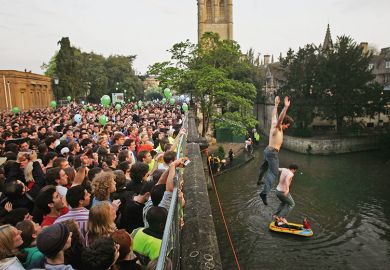Browse the full results of the Arab University Rankings 2024
Lebanon is affectionately known, in the Arab region, as the “university of the Middle East”. The title reflects Lebanon’s long history in bridging Eastern and Western cultures and the prestigious institutions established in the late 19th and early 20th centuries, making the country a hub for cultural, intellectual and scientific activity in the MENA region. This reputation still manifests itself in global and regional university rankings, where Lebanese universities lead the pack in measures of quality education, diversity, gender equality and scientific output.
The past decade, though, has been fraught with challenges and unprecedented crises. A political impasse gripped the nation in October 2019, when tens of thousands of Lebanese youth took to the streets demanding transparent governance, elimination of wasta or cronyism, and better job opportunities. The situation was compounded by the Covid-19 pandemic and subsequent lockdowns, a debilitating financial crisis that led to the collapse and devaluation of the national currency, the tragic Beirut Port explosion and the current regional conflict that started on 7 October 2023, leading to the mass displacement of more than 1.5 million Lebanese citizens, according to latest estimates.
Amid these challenging circumstances, educators in Lebanon were called to action, attempting to salvage the educational sector from deterioration and the learners from becoming a lost generation with no prospects in a globalised knowledge economy. Universities responded by utilising all resources at their disposal, recognising the value of online learning and more advanced technologies such as artificial intelligence and extended realities, which include virtual reality, augmented reality and mixed reality.
Virtual exchange (VE) emerged as a powerful model that integrates the aforementioned technologies and other effective educational tools such as gamification, flipped classrooms and collaborative learning into higher education curricula. VE refers to connecting classes across different institutions using videoconferencing applications. Learners in these classrooms usually reside in different countries or even continents. This provides an opportunity for students to meet peers from different cultures and to work with them on joint activities and assignments. VE is especially valuable to countries experiencing conflict, such as Lebanon, because it sustains students’ ability to access global education when travel and physical movement is restricted. With the recent threat of Beirut Airport being targeted, students were still able to connect to professors and classmates in Europe and North America without risking their safety or burdening themselves and their families with travel expenses.
The virtual exchange programme (VEP) at the Modern University for Business and Science was established in 2015 in collaboration with Keith Bowen, director of learning design challenge at Stanford University. Our main objective at the time was to address cultural stereotypes and flawed notions that stand in the way of intercultural communication and understanding between Eastern and Western communities. Our courses were designed to offer students the opportunity to work together in smaller teams to deliver collaborative capstone projects that address needs in their community. This arrangement allows students to meet outside their “virtual classes” in the safety of their homes to freely interact, ask questions and explore the circumstances of their classmates, offering students an opportunity to acquire in-depth knowledge of a new culture that would otherwise not be possible.
The data we continue to collect from VE classes indicate an improvement in students’ communication skills, self-esteem, academic performance and, importantly, empathy towards others. In a region where many citizens feel unheard or unseen, especially on the global stage, our students report gratitude for the opportunity to express themselves and represent their culture. Students are thrilled to educate their peers whose notions were otherwise shaped by the media and inaccurate sources. This has also led to students becoming more critical about ideas spread by the media or transmitted from their surroundings, which is a skill that is prerequisite for intercultural communication and understanding. Participants in VE programmes have expressed a sense of fulfilment and gratitude for taking part in the classes because they saw it as an opportunity to expand their professional networks and improve their job prospects.
Our experience with VE was not without challenges, though. Despite the majority of our VEP alumni recommending the VE classes to colleagues and friends, they report some difficulties. Chief among those problems is internet connectivity and other technical or logistical issues such as power cuts (in Lebanon), inconvenient time differences and, very rarely, misunderstandings about assignment contributions from team members.
Our virtual exchange programme has become an integral part of our internationalisation at home strategy and now houses classes in global public health, humanitarian relief, education technology and education in emergencies, and will expand to include classes from more disciplines. With the tragic conflict in the region threatening students’ lives and well-being, we anticipate that VE will take a central role in offering our students a sense of normality and an opportunity to freely express their perspectives about the war they are experiencing. Importantly, VE classes represent a glimmer of hope to the students as they maintain a connection with the rest of the world that is more understanding and appreciative than what they see reflected in the media. VE is a tool that gives educators and learners the ability to remain resilient, well trained, informed and connected.
Nael Alami is vice-president at the Modern University for Business and Science in Lebanon.




